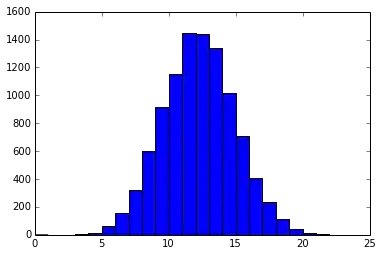I would try working the Euclidean algorithm backwards: $r_{n-2}=k\cdot r_{n-1}+r_n$, looking for $k$'s that gave me the small factors I wanted at each step. Since you want $\gcd(m,n)=1$, the last two remainders would be $0$ (last), and $1$ (second to last).
For instance, the (reverse) sequence of remainders could be something like:
$0$
$1$
$6\cdot 1+0=6$
$4\cdot 6+1=25$
$2\cdot 25+6=56$
$1\cdot 56+25=81$
$4\cdot 81+56=380$
$3\cdot 380+81=1221$
Giving you a problem where you start with taking the gcd of $380=2^2\cdot 5\cdot 19$ and $1221=3\cdot11\cdot 37$
(Of course you can play with the multipliers going from one remainder to the next to (try to) get initial numbers that have suitable factorizations.)
Then, as you discuss in your comments, you would multiply each by some common amount to get the problem you wanted.
